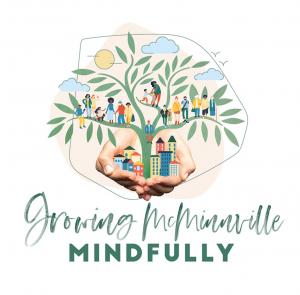Growing McMinnville Mindfully
For the 2020 UGB Amendments Click Here
On Tuesday, December 8, 2020, after three nights of public testimony (December 1, December 2 and December 3, 2020), the McMinnville City Council approved Ordinance No. 5098 adopting the McMinnville Growth Management and Urbanization Plan and its appendices, and the Findings for the McMinnville Growth Management and Urbanization Plan. This action added land to the McMinnville urban growth boundary (UGB), provided comprehensive plan designations for the land in the city’s urban growth boundary that is not currently in the city limits, adopted amendments to the Comprehensive Plan goals, policies and proposals, and adopted amendments to Chapter 17 of the McMinnville Municipal Code.
On Thursday, December 10, 2020, after a public hearing and receiving written public testimony, the Yamhill County Board of County Commissioners approved Ordinance 912, supporting the McMinnville Growth Management and Urbanization Plan and the amendment to the McMinnville Urban Growth Boundary as Part of the Yamhill County Comprehensive Plan.
All of the final plan documents were delivered to the Department of Land Conservation and Development on Friday, December 11, 2020 and a Notice of Decision was mailed to all people who provided public testimony at the public hearings.
Next steps are for the Director of the Department of Land Conservation and Development to review the McMinnville Growth Management and Urbanization Plan, its appendices and findings and issue a decision of approval, denial or remand within 120 days of the submittal.
Click here for all of the final documents.
For questions, please contact Heather Richards, Planning Director at 503-474-5107 or Heather.Richards@mcminnvilleoregon.gov
Growth. It’s complex. It’s emotional. It’s personal. It means so many different things to so many different people. And in McMinnville it has been a particularly difficult dialogue – everyone wants to maintain the small town charm that defines McMinnville and avoid gentrifying into a community where only the wealthy can afford to live.
Growth is a balancing act and one that every city should plan for. In fact, in Oregon every city legally needs to plan for growth. In order to protect farm and forest land, and govern against sprawl, most of the state’s population growth is intended to happen within cities' urban growth boundaries. Cities are meant to have at least five years of buildable land supply within the city limits and 20 years of buildable land supply within the city’s urban growth boundary. But the process for establishing buildable land supply is very complex, data driven and an important community dialogue.
The City of McMinnville has been trying to plan for the next twenty years of growth for the past 26 years. This is a website devoted to the City’s planning efforts to grow McMinnville mindfully. It is comprised of several different efforts. Some of which have been successful and some of which are still striving for success. Success being defined in many different ways but the greatest success is a community that can retain its identity, have a thriving economy and housing that serves all income levels of its current residents and future residents for a great quality of life.
There have been three significant projects recently that have informed the Growing McMinnville Mindfully program:
Each project is defined below and have their own project pages that are provided in the links above and in links below.
GROWING MCMINNVILLE MINDFULLY PROJECT SUMMARIES:
MGMUP 2003 UGB Remand Project
In 1994, the City of McMinnville entered into a Periodic Review program with the Department of Land Conservation and Development for growth planning. The intent of this periodic review program was to evaluate the city’s ability to accommodate 20 years of future growth for housing and employment needs within the existing urban growth boundary and if needed to expand the existing urban growth boundary to accommodate the future need. The existing UGB was established for a 20 year growth period of 1980 – 2000. The City started the work towards identifying the need for a future 20 year growth planning period. Over many years of evaluation, analysis and oppositional challenges, the City of McMinnville eventually adopted a McMinnville Growth Management and Urbanization Plan in 2003 for the planning horizon of 2003 – 2023. This plan was challenged and opposed at the state level of review and was remanded to the City of McMinnville for further refinement. In 2005, the City of McMinnville adopted a refined MGMUP for the planning horizon of 2003-2023 which was approved by the state. After the state’s approval the plan was challenged again in the Court of Appeals. The Court of Appeals remanded the plan back to the state who then remanded it back to the City of McMinnville in 2012. In 2020, the McMinnville City Council directed city staff to prepare a response to the remand. This direction was provided based on the fear of another long legal journey of challenges and opposition for a new effort, and the interest in building upon all of the efforts of the previous project to resolve the one outstanding assignment of error in the court remand.
Link to the MGMUP 2003 UGB Remand Project is below:
Great Neighborhood Principles
In 2018, the City of McMinnville initiated a conversation about what makes a neighborhood great in McMinnville in an effort to ensure that all residents of the City of McMinnville have the opportunity to live in a great neighborhood. City staff worked with project advisory committee and eventually the McMinnville City Council adopted new policies for the McMinnville Comprehensive Plan outlining 13 Great Neighborhood Principles.
Link to the Great Neighborhood Principles project is below:
2018 Housing Needs Analysis, Buildable Lands Inventory and Economic Opportunity Analysis.
In 2018, the City of McMinnville City Council directed city staff to move forward with a new attempt at growth planning for the City of McMinnville. To do this the City needed to first update its Buildable Lands Inventory, Housing Needs Analysis and Economic Opportunity Analysis to understand how much buildable land there still was within the existing McMinnville Urban Growth Boundary, what the land need would be for a future growth planning horizon of 20 years and 50 years in order to establish a new urban growth boundary (20 year planning horizon) and a future urban reserve area (50 year planning horizon).
City staff worked with a project advisory committee of community stakeholders and drafted a buildable lands inventory, housing needs analysis and economic opportunity analysis. However, after the initial drafts were completed, the Department of Land Conservation and Development informed the City of McMinnville that they were no longer supporting a process that the City of McMinnville had planned to undertake which was to establish the 50-year Urban Reserve Area (URA) and then pull the 20-year Urban Growth Boundary from that URA. (A process that nine other communities had completed successfully over the past twenty years). City staff brought this information to the McMinnville City Council and at that time, the City Council directed city staff to work on responding to the Land Conservation and Development Commission’s 2012 Remand to the City of McMinnville for the 2003 McMinnville Growth Management and Urbanization Plan in order to build off of past investments and to minimize the opportunity for further challenges and delays in meeting the city’s need for land supply.
City staff notified DLCD of the City Council’s direction and issued an official notice that the City of McMinnville will work towards an adoption of the 2018 Buildable Lands Inventory, Housing Needs Analysis and Economic Opportunity Analysis with a public hearing in May, 2021 in order to build upon that effort with a future Urban Reserve Area effort after the UGB Remand project was completed. This new Urban Reserve Area effort would be for a future 30 year planning horizon.
Links to the 2018 BLI, HNA and EOA Project are Below:


 Community Development Director:
Community Development Director: 